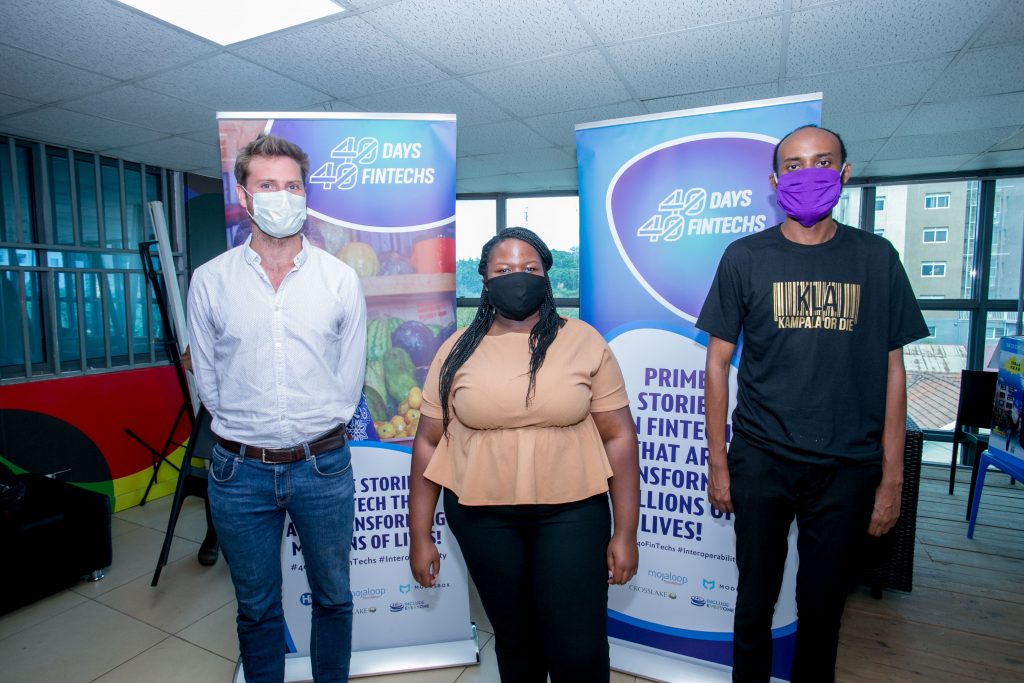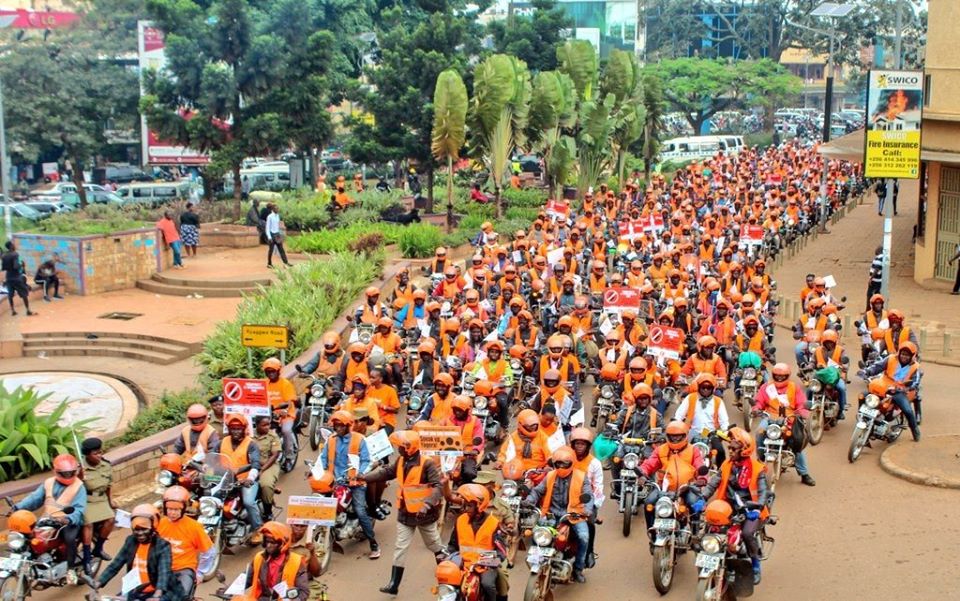
With huge traffic congestion in most African cities, the easiest way for one to travel from one point to another is by using a motorcycle, commonly known as Boda Boda in Uganda.
Although this is the fastest means of transport that beats any manner of traffic jam, the only challenge comes with safety, as most Boda Boda cyclists ride recklessly.
However, while some people chose to just lament about the reckless habits of the Boda Boda riders, Ricky Thomson Rapa, a school dropout, saw a huge opportunity.
The loss of his close friend in a Boda Boda accident in 2012, triggered his mind and he started advocating for road safety for Boda-Boda riders and users, by encouraging them to wear helmets.
Although he had an idea of professionalizing Boda Boda riding, especially around Kampala, it did not come to fruition until late 2014 when he teamed up Maxime Dieudonne and Alastair Sussock.
This saw the birth of SafeBoda Uganda, a community of entrepreneurs and Boda Boda riders working together to improve professional standards across the urban transportation industry in Africa.
The company deploys technology to connect with its customers through an Application (app) which users use to hail a Boda Boda using their smartphones, thus ensuring safe access to mobility.
According to Nicholas Kamanzi, the Head of payment at SafeBoda, the company currently has over 18,000 professionally trained riders in Kampala, serves over 500,000 customers in Kampala, Uganda and increasingly continues to innovate to meet its customers’ changing tastes.
In a space of five years, it has promoted safe and professional standards in the transportation industry and has encouraged a network of riders who are responsible, foresighted, entrepreneurial and well clued on customer care.
This has increased safety on the roads, improved the livelihoods of many boda-boda riders through aspects of microcredit and micro insurance and also made transport around the city easier, comfortable and more reliable.
Expansion
In addition to Uganda, the company has scaled to other parts of Africa including Mombasa and Nairobi (Kenya), and Ibadan (Nigeria) with the aim of improving the transportation industry for both riders and passengers by increasing the number of safe trips taken per day and by making travel around the cities convenient and stress-free.

In 2017, the company launched a SafeBoda wallet to allow passengers plan their trips better by getting money from their mobile money accounts into their SafeBoda wallet for easy settlement of the fares.
For convenience, Kamanzi said that the company expanded the avenues through which customers would load their wallets by allowing customers to request any Safe Boda rider randomly found on the road to deposit for them on the wallet. Additionally, customers can also use merchants in the ecosystem to deposit in the wallet.
Other products
In addition to paying for trips, SafeBoda also allows customers to use money in their wallets to buy airtime from the different networks, buy food from the different restaurants and sharing with friends, among others
It also partnered with banks to allow SafeBoda riders to save for their future. Under this, a rider agrees to the amount that should be taken off for a specific developmental target, then retrieved after a given period. This is on top of the other financial services like loans rendered to the riders. SafeBoda has a tier IV license that allows them to give loans to its riders.
SafeBoda also collaborated with a third-party asset provider to allow its riders access assets on loans like motorcycles and life insurances service.
According to Kamanzi this financial technology advancement has improved the lives of the riders.
40-days-40-FinTechs initiative
Safe Boda is among the FinTechs participating in the 40-days-40-FinTechs initiatives, organised by HiPipo in partnership with Crosslake Tech, ModusBox and Mojaloop Foundation.
The initiative seeks to enable FinTechs to innovate solutions that facilitate cross-network financial transactions at minimal risks to enhance access to financial services.
Running for 40 days, the project will see the participating 40 FinTechs acquire interoperable development skills to improve access to financial services, using the Mojaloop open source software.
The HiPipo CEO Innocent Kawooya alluded to how the FinTech landscape in Uganda has grown over the last five years, noting that there are currently over 67 FinTechs in the country today, doing amazing work.
“We are here because we believe in the work of financial technology and the players that have been doing the donkeywork to make sure there is better service provision, affordability, accessibility and transparency and services becoming more secure each day,” he said.
He noted that among the tools that have been used to bridge a gap, especially in value addition services, is technology, which is a carrier of payment gateways that ensure that everyone can be able to pay off their wallet.
Kawooya added that HiPipo is keen at promoting secure digital financial services, given their virtual role in promoting financial inclusion.
“We believe that one of the most important thing to do is to ensure that people can access financial services because an economy that includes everyone benefits everyone,” he said.
